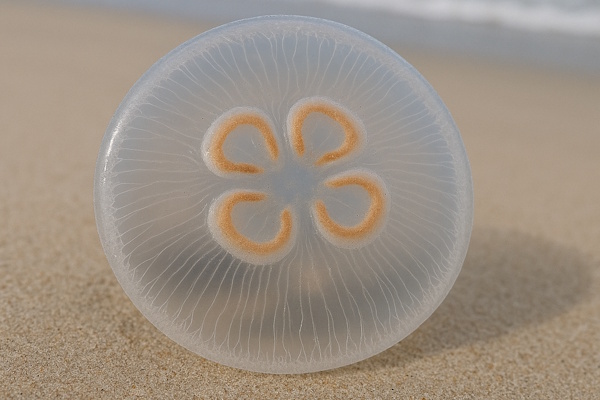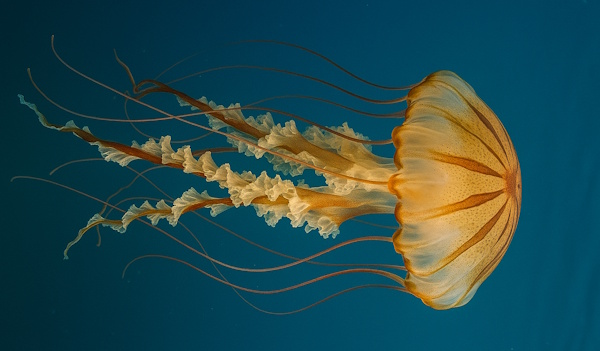Greece is known for its dreamlike beaches and the clear waters of the Aegean Sea. However, jellyfish can occasionally disrupt the swimming experience. For holidaymakers, it is important to know when and where jellyfish appear, which species can be dangerous, and how to treat contact.
1. Occurrence of Jellyfish in Greece
Jellyfish are found in all seas around Greece, especially in the summer months when the water is warm. The most frequently affected areas are:
-
Aegean Sea: Cyclades, Dodecanese, Crete
-
Ionian Sea: Zakynthos, Kefalonia, Lefkada
-
Mainland coast: Chalkidiki, Peloponnese
The visibility of jellyfish strongly depends on currents and the season. In some years, certain beaches can be particularly affected.
2. Common Jellyfish Species
-

-
Mostly harmless, causes only mild skin irritation
-
-
Box jellyfish (Cubozoa, very rare)
-
Venomous, can cause severe pain, skin reactions or circulatory problems
-
-
Compass jellyfish (Chrysaora hysoscella)
-
Painful sting, but rarely dangerous for adults
-

Most encounters are harmless, severe reactions occur occasionally.
Our Tip
Hotels in Greece are best booked via Booking.com: large selection from guesthouses to resorts, genuine guest reviews, flexible (often free) cancellations and fair prices.
3. Seasonal Risk
The main season for jellyfish is from June to September, when the water is warm and many tourists are swimming. In spring or autumn, jellyfish are less common but not impossible.
4. Behavior and Precautions
-
Before swimming, pay attention to local warning signs at the beach
-
Avoid beach sections with many jellyfish in the water
-
Swimwear or Lycra suits can protect the skin
-
Supervise children closely
5. First Aid for Jellyfish Stings
-
Avoid contact with jellyfish, do not touch the tentacles
-
Rinse the affected area immediately, do not use fresh water – salt water is better
-
Remove any remaining tentacles with tweezers or gloves
-
Apply vinegar for box jellyfish – it neutralizes toxins
-
Relieve pain with cooling or mild painkillers
-
Consult a doctor – call emergency services immediately if severe reactions such as difficulty breathing or circulatory problems occur
Most stings are harmless and heal within a few hours.
6. Conclusion
Jellyfish can occasionally make swimming in Greece unpleasant, but they rarely pose a serious risk to healthy adults. Those who know the season and affected regions and take simple precautions can enjoy their beach holiday without problems.